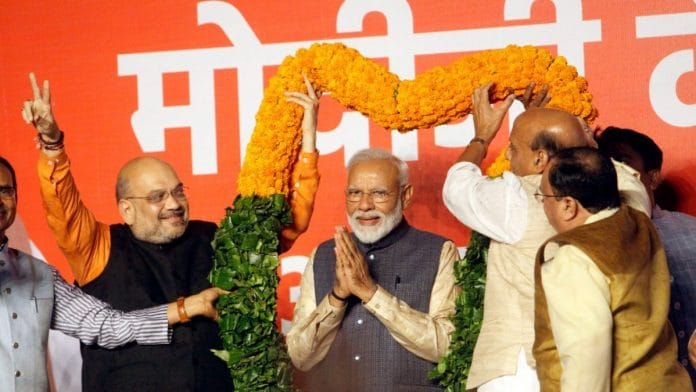New Delhi: Continuing its efforts to clamp down on bogus companies in its second term, the Modi government expects to deregister 20,000 companies by the end of this year, a senior government official told ThePrint.
The move comes after the ministry of corporate affairs sought know-your-customer (KYC) details of all the registered companies in March.
While the government has already received KYC details of about five lakh companies, another five to six lakh companies are yet to submit the information. The government is hoping to receive the KYC details of the remaining companies by 15 June, said the official who didn’t wish to be identified.
The KYC details of companies include submission of registration number, address of registered office, names of the board of directors, among others. The process also requires photographs of directors standing outside the registered office premises. Further, the companies are also required to report their bank accounts.
“The process of acquiring KYC details of companies is currently on. Any company that fails to pass the KYC test will be delicensed and necessary legal action will be taken against their promoters,” said the official.
The latest crackdown comes on the back of the Modi government’s sustained action against bogus firms over the last two and a half years.
Prime Minister Narendra Modi had made black money and corruption a major poll plank as part of his 2014 election campaign.
The 8 November 2016 demonetisation exercise — scrapping high value currency notes of Rs 500 and Rs 1000 — and the launch of the goods and services tax (GST) were seen as efforts in this direction.
Also read: Demonetisation gain takes a hit as income tax e-returns drop by 6 lakh in 2018-19
Delisting companies
Since the 2016 demonetisation exercise, the Modi government has deregistered over three lakh companies, including thousands of shell firms.
Action against these companies was taken after they failed to provide proof of business transactions, or didn’t pay taxes, or didn’t file financial statements.
The bank accounts of these companies have been frozen and they have lost the license to carry out businesses.
Shell companies are ghost entities, created for the purpose of diverting money. They don’t have any active business operations or significant assets. Usually created for an illegal purpose, shell companies do not disclose details of actual ownership or business and revenue model to divert the unaccounted money and avoid tax.
The Serious Fraud Investigation Office has already started investigation against the companies that the Modi government has deregistered.
Dummy directors brought to task
Last year, the government also initiated a KYC drive for the directors of registered companies.
The companies were asked to submit the permanent account numbers, qualifications and details of remuneration packages of their directors. Under a ministry directive, companies are required to update the KYC details of their directors annually.
Out of the total 33 lakh directors of registered companies, 17 lakh failed to fulfil the KYC requirements, and were consequently ousted, said the official.
“The exercise brought to the fore that companies have been actively taking their drivers, domestic helps, garderners and other such helpers as their directors. Essentially they have been dummy directors,” the official added.
Also read: India’s next budget may rely on some bogus numbers






